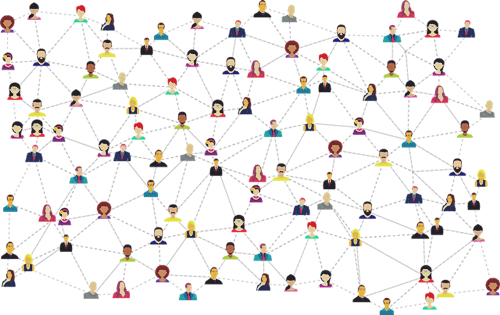Empathy during the Pandemic: Why It's More Important than Ever


Written and verified by the psychologist Valeria Sabater
Empathy during these difficult times is more necessary than ever before. Everyone, including world leaders and health workers, should be empathetic. Never has it been so important to awaken this characteristic in human beings. In this article, you’ll discover the importance of empathy during the pandemic.
However, that being said, something that psychologists know very well is that we don’t always use empathy well, due to our human condition.
Feeling someone’s pain and understanding it are two different things. This is because the line between feelings and actions is one not many people are willing to cross. In fact, very few people mobilize energy and resources for the common good.
After all, that’s the true purpose of empathy: to promote survival and well-being by connecting with other people’s emotions and behaving in a way that seeks what’s best for them. So simple, and yet, at times, so difficult.
As Daniel Goleman rightly points out, no matter how smart someone is, without effective and active empathy, they won’t get very far.

Empathy during the pandemic
During crises, empathy can act as a catalyst or a means of bringing about harmony between groups, identifying needs, and actively collaborating.
Thus, you need to promote positivity and not be an architect of conflicts. The world needs hearts and minds focused on creating solutions.
Below, discover in detail why empathy is crucial during a pandemic.
Empathy to understand the needs of those around us
In this current health crisis, there’s something far more decisive than simply avoiding being infected. Some people simply limit themselves exclusively to taking care of their families. However, in the current situation, we must be able to go beyond that.
We need neighborhood support networks. We need to be able to identify the retired man who lives alone on the fifth floor of our apartment building or that elderly couple on the third floor who needs someone to buy their groceries for them.
Emotional empathy is very useful, as it allows us to feel what another person is feeling. However, we must also work on cognitive empathy. It consists of understanding the real needs, those that go beyond the emotions, and act and create solutions.
Front-line professionals also need empathy
It’s clear to us that our health care providers are, by nature, people that usually have a genuine sense of empathy for their patients. That’s undeniable. However, empathy is more necessary than ever during this pandemic because, in recent days, we’re clearly seeing reprehensible actions directed towards these and other groups.
Some people are spray painting threatening messages on many doctors’ cars. Neighbors are leaving notes on the doors of these doctors, nurses, or supermarket workers, demanding that they find another place to live during the pandemic. This is very inappropriate!
These behaviors cause fear, uneasiness, and distress in these workers who are giving their all during this pandemic. If we aren’t even able to care for those who care for us, how are we going to overcome the situation?

We need leaders skilled in compassionate empathy
In his book Focus: The Hidden Driver of Excellence, Daniel Goleman explains that there’s a third type of essential empathy in the field of leadership. He calls it compassionate empathy. This type of empathy creates an emotional, cognitive, and behavioral response that shows genuine concern for others. This type of empathy allows compassion that values human beings above all else to come to the fore.
An opportunity for global growth
Empathy is needed more than ever during this pandemic. We have a real opportunity to exercise it and to take into account what many studies, such as the one conducted at the University of Manchester by Dr. Karen Tristen, have revealed to us.
According to this study, active empathy, which is the one we provide through social support, creates stronger and happier ties and can even increase life expectancy.
Thus, this is perhaps the ideal opportunity for our children to learn it and for it to expand in our communities and neighborhoods. Also, it’s the perfect breeding ground for compassion. Compassion that we perceive from a friend, a brother, a doctor, and even a researcher who, from a country thousands of miles away from ours, is striving to find a vaccine. Let’s reflect on this and take advantage of this opportunity.
All cited sources were thoroughly reviewed by our team to ensure their quality, reliability, currency, and validity. The bibliography of this article was considered reliable and of academic or scientific accuracy.
- Tristen K. Inagaki, Edward Orehek On the Benefits of Giving Social Support: When, Why, and How Support Providers.Personality and Social Psychology Bulletin, 32(3), 313–327. https://doi.org/10.1177/0963721416686212
This text is provided for informational purposes only and does not replace consultation with a professional. If in doubt, consult your specialist.








